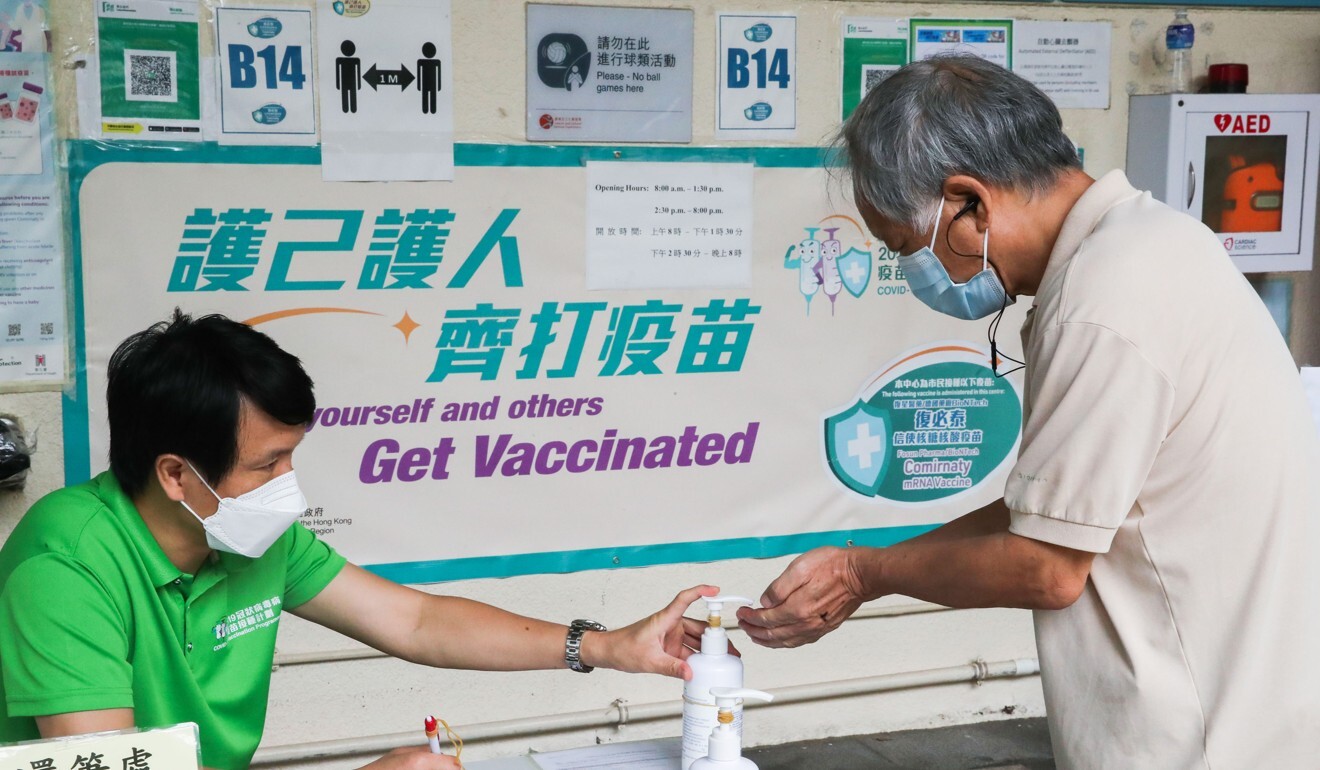
Coronavirus: expert panel advises third shot for Hongkongers who took Sinovac Covid-19 vaccine
- But priority should be given to elderly, people with weak immunity and workers with high exposure to virus, joint scientific committee says
- Among BioNTech recipients, only those in high-risk group should get booster shots for now, it says
Everyone who has received two doses of China’s Sinovac vaccine should get a booster shot against Covid-19, experts advising Hong Kong’s government have recommended, with priority given to the elderly, those with weak immunity and workers with high exposure to the disease.
“For those receiving CoronaVac ... we recommend the entire population get the third dose in the future,” said the centre’s controller Dr Edwin Tsui Lok-kin, referring to the trade name of the vaccine made by Sinovac.

Tsui said the immunocompromised and people aged 60 or above should receive the booster shots first.
The committee also recommended that only high-risk groups among those who had taken the German-made BioNTech vaccine, the other one being offered in the city, should take the booster shot for now.
Tsui said health authorities would need time to decide the best way to deliver the extra round of jabs but he assured the public it would not take long.
The experts suggested that people who had previously taken Sinovac could stay with the brand for their booster shot if they were concerned about possible side effects, such as feeling tired or muscle pain.
But they could consider switching to BioNTech if they wanted greater protection against the disease as those jabs raised antibody levels higher, they said.
While studies had shown that antibodies produced by BioNTech declined over time, Tsui said residents who were not deemed at high risk should not be concerned with taking a third shot as their immunity was still deemed sufficient.
The World Health Organization has said that flu vaccines could be administered at the same time as jabs against Covid-19. But the experts said they supported maintaining Hong Kong’s existing approach of spreading out the two types of shots by at least two weeks.
“Under the zero-Covid strategy, we have enough time to adopt a careful approach to separate the administration of two vaccines by 14 days, so we can clearly distinguish whether one of them causes any side effects,” panel member Professor Lau Yu-lung said.
Hong Kong ‘likely’ to give out seasonal flu, Covid-19 shots at same time
While health minister Sophia Chan Siu-chee has previously offered assurances that the city’s stockpile of 7.5 million Sinovac shots and an equal number of BioNTech doses would be enough to supply third jabs, Tsui said authorities would need to carefully assess the demand before making any decisions about buying more vaccines.
“Based on the amount of vaccines we currently have and people’s choice [of jabs], we could procure more from the pharmaceutical firms if necessary,” he said.
In addition to the elderly and people with weak immune systems, boosters are recommended for residents who are likely to face greater exposure to the virus, such as health care professionals, cross-border drivers, airport workers, quarantine hotel staff and care home employees.
For the elderly and those at high exposure risk to the virus, the recommended interval between the second and the third shots is six months.
A handful of local studies have examined the effects and safety of a third dose. Several members of the Executive Council have also received a third jab as part of a study conducted by the Hong Kong Sanatorium and Hospital.
No mixed Covid-19 booster shots for China until scientists are sure, top disease expert says
Earlier this month, WHO recommended that the immunocompromised should get an additional shot as should people aged 60 or above who had received shots made either by Sinovac or Sinopharm, another Chinese company
A number of countries around the world have already started administering booster shots to their residents. Singapore, the United Kingdom and the United States have started giving them out to specific groups such as the elderly and people with weak immunity, while Israel is among a handful of countries administering the extra jab to every fully vaccinated person.

